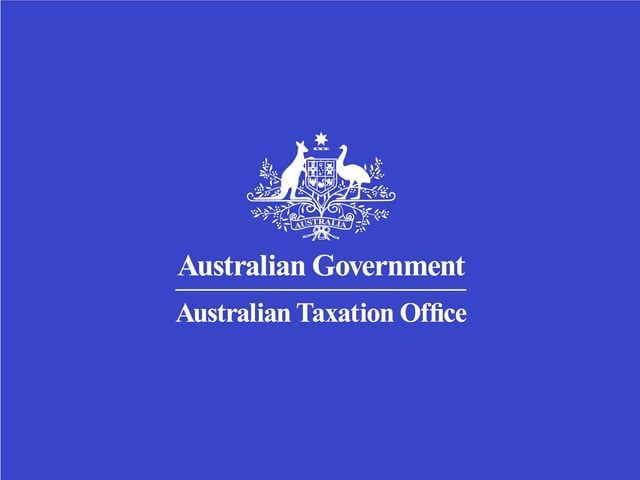Moving from Excel to Cloud Accounting
When starting, most businesses handle their accounting tasks using Excel. While efficient, it may not support the needs of your growing business.
Since 2000, it has been mandatory for all Australian businesses to add and report GST. As such, many business owners find it much more convenient to record their financial data digitally. However, some are still struggling. To help make the transition to online reporting, this blog outlines:
- Why Excel is less effective for business accounting
- The benefits of online accounting
- Reasons to transfer to online accounting, and;
- How to transition to online accounting
Downsides to using Excel for business accounting
As businesses grow, their taxation reporting requirements become more complex. In many cases, Excel is not designed to handle detailed taxation information. Here are six key reasons to move on to online tax reporting.
#1 Excel requires you to master programming language
As it’s so widely used, business owners often forget how complex Excel is. The program can be quite difficult to master and extremely time consuming. For the novice, it can seem like having to learn a new programming language.
#2 Developing an Excel spreadsheet to suit your financial requirements requires careful preparation
Setting up expense reports and invoice tracking is very time-consuming. Also, you may need to continually change information as you go.
#3 You need a strategy
Excel offers no flexibility to reconfigure data. So, before starting, you need to know exactly how you’ll use the information. You’ll need report names, the cells you want to print and ensure every report is correctly time stamped.
#4 Can’t integrate with other business software
Many Excel users find it incompatible with business needs. It’s extremely difficult to enter large data sets, combine various worksheets or incorporate scripts. Excel does not integrate with other programs you may need to run your business smoothly.
#5 There is no audit trail
This leaves Excel susceptible to fraud. The reason is, it’s very easy to change information and difficult to keep track of who has made the changes.
#6 Transactions are hard to track
Many business financial records contain double entries. Excel does not automatically recognise these. So, rather than helping your business run smoothly, it can make creating financial documents very difficult. This, in turn, can result in providing your accountant with inaccurate records.
Benefits of online accounting
Here are six key reasons to utilise an online accounting system.
#1 Ease of use
A convenient dashboard gives you ready access to all financial data. So, you don’t have to painstakingly enter data manually. With a clear view of your company’s finances, you’ll make well-informed business decisions. This will provide your customers with absolute confidence.
#2 Accurate data
Accounting software keeps your business’ pertinent financial data in the cloud. It automatically feeds bank statement lines into your software. This dramatically reduces data entry requirements and possible mistakes.
#3 Real-time reporting
Get detailed, accurate financial reports whenever you need them. So, you no longer have to wait until the end of the month, or end of the quarter. You can view and share real-time budgets and reports quickly and easily. This also enables you to complete tasks, like sales tax returns in minutes, not hours.
#4 Up-to-date information
Create any information your employees and customers need at a moment’s notice. Your business will be equipped to manage its finances efficiently and accurately. This is crucial during tax time when you need to share your financial information with your accountant. Your tax information will always be up-to-date and easy to share.
#5 A clean audit trail
All the historical information you or your investors require is right at their fingertips. Accounting software creates a clean audit trait that can’t be compromised. And, every business transaction (i.e. sales contracts, employee payments and more) is recorded. A complete audit trait reassures your employees and customers and satisfies the ATO’s requirements.
#6 Syncs with other business software
Using cloud-based software allows you to take advantage of apps to sync with your financial data. Invoicing, inventory management and so much more take the time and frustration out of business accounting.
#7 24/7 access to financial data
Every member of your team can access your data at any time. With cloud software, you can share financial information with your employees, accountant, bookkeeper or financial advisor.
Transitioning to online accounting
Are you ready to make the switch? To reap the above benefits and more, follow these simple tips.
Choose the right time
The end of the financial year may seem like the obvious time to integrate new accounting software. However, this is a very busy period for small business owners. You may not have enough time to integrate the new system and prepare data. So, we advise making the switch during your slower months. This can be the end of the month or quarter, for instance.
Either move your accounting history or enter open balances
Importing historical data or starting over with open balances can be a difficult choice. In most cases, however, moving your entire accounting history isn’t necessary. It’s generally recommended to export it to a backup file, and simply transfer the uncleared transactions.
Organise your data
Different software will support different file formats. The software you choose will specify things like: text limits, date formatting, column headings and more. Ensure your data is error-free, and is saved in the correct format. Test this by transferring a few rows of data, and ensure your formatting is correct before entering the remaining data.
Run both systems simultaneously
Transitioning to your new accounting software takes time. To ensure things go smoothly, run both systems together, until you can use the software confidently. Depending on your business size, you may need to run both systems for a few days or weeks.
Would you like more advice on how Xero accounting software can benefit your business? For specialised training and support in Xero Accounting packages, call or email 360 Accounting Services today.
References:
https://www.goforma.com/small-business-accounting/moving-from-excel-to-accounting-software
https://www.xero.com/au/resources/small-business-guides/accounting/move-from-excel/
https://www.accountingweb.co.uk/community/blogs/robnixon2808/making-tax-digital-from-down-under
newsletter here!
Share This Post





